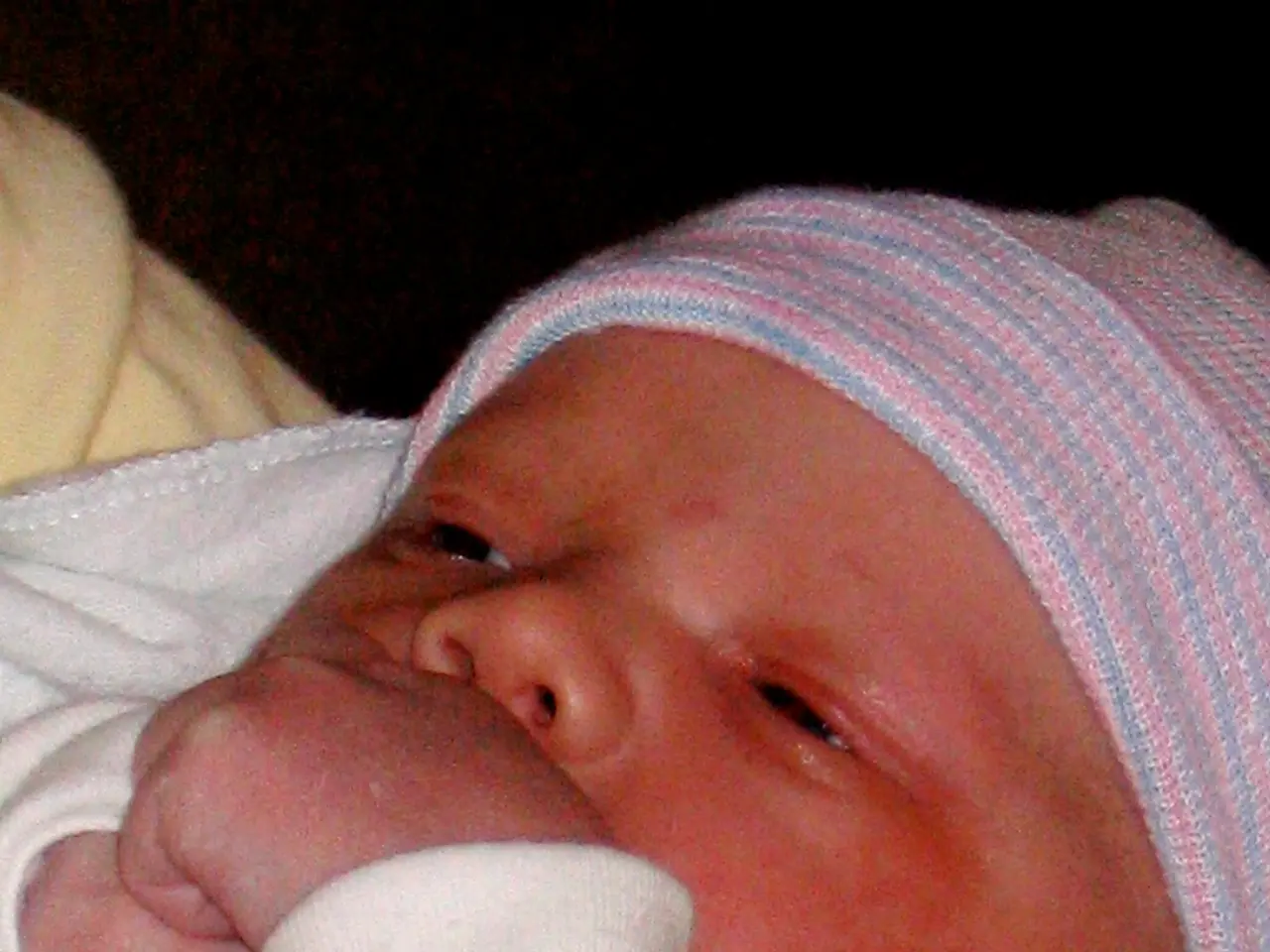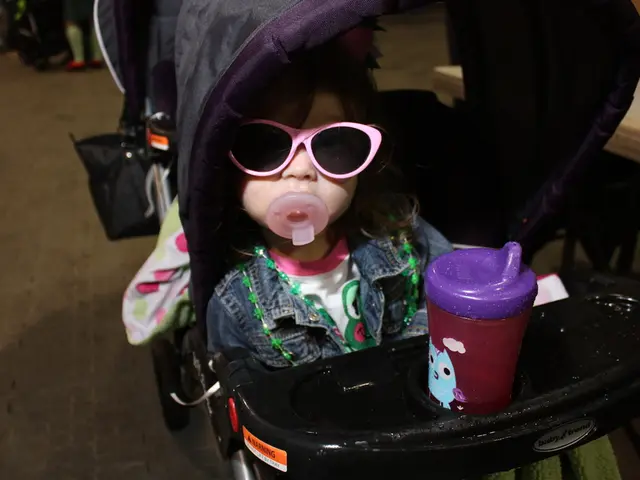Essential Steps in Maintaining Cleanliness for Newborns
Welcoming a newborn into the family is an exciting time, but it also comes with the responsibility of ensuring their health and safety. Here's a comprehensive overview of specific hygiene practices for newborns, covering handwashing, feeding routines, umbilical cord stump care, safe bathing guidelines, and factors to consider for an effective newborn hygiene routine.
Handwashing
Washing hands frequently is crucial to prevent the spread of germs. Frequency: Wash hands before handling the baby, after bathroom use, and after blowing your nose, coughing, or sneezing. Technique: Use soap and water for at least 20 seconds, covering all surfaces of your hands.
Feeding Routines
Breastfeeding
- On-Demand Feeding: Feed every 1-3 hours or 8-12 times in 24 hours.
- Proper Latch: Ensure the baby's mouth is wide open with the chin touching the breast and the nose clear.
- Signs of Fullness: Look for swallowing, a working jaw, softening breasts, contentment, and sufficient wet and poopy diapers.
Formula Feeding
- Sterilization: Always sterilize bottles, nipples, and caps before use.
- Hydration Check: Ensure the baby is well-hydrated by checking for signs of passing urine and stool.
Umbilical Cord Stump Care
- Cleaning: Gently clean the cord with a cotton swab or soft cloth and soap.
- Drying: Keep the area dry to promote healing.
- Avoid Submerging: Avoid submerging the stump in water until it falls off naturally.
Safe Bathing Guidelines
- Frequency: Bathing should be infrequent, ideally two to three times a week, to prevent drying out the baby's skin.
- Method: Sponge baths are safer until the umbilical cord stump has fallen off.
- Temperature: Ensure the water is not too hot or cold (around 98°F to 100°F).
Factors for an Effective Newborn Hygiene Routine
- Skin-to-Skin Contact: Promotes bonding and helps regulate the baby's body temperature.
- Environmental Hygiene: Keep the environment clean to prevent infections.
- Diapering Practices: Use clean diapers frequently and clean the diaper area properly with soap and water after each change.
- Safety in the Crib: Ensure the crib is free of loose bedding and toys to prevent suffocation.
- Professional Guidance: Consult with healthcare providers for personalized advice on newborn hygiene.
Maintaining good hygiene practices is essential to protect newborns from harmful bacteria and germs. Ensuring a smoke-free environment is crucial as secondhand smoke can cause respiratory problems in babies. Consistency in maintaining hygiene practices contributes to a healthier environment for the baby and helps prevent skin irritations and infections.
- One key responsibility for parents during newborn development is ensuring the baby's emotional development, which requires maintaining a consistent and nurturing environment that promotes bonding.
- Developing healthy behaviors in kids is vital for their overall health-and-wellness, and parents play a significant role in ensuring their children develop good hygiene habits.
- Improving parenting skills through education is essential to foster a nurturing and supportive home environment, benefiting both parents and children, especially during the critical stages of baby development.
- In addition to physical health concerns, womens-health is an essential aspect of a new mother's well-being and must be addressed to ensure optimal postpartum recovery and breastfeeding success.
- To complement a well-rounded parenting approach, incorporating science-based methods for health-and-wellness, such as proper hygiene routines, nutrition, and emotional development strategies, will help create a healthier, happier family.
- A primary factor in a baby's nutritional needs during the early stages of life is breastfeeding, which provides numerous benefits for both mother and child, including antibodies that aid in the baby's immune development.
- An overall approach to parenting that includes addressing not just physical needs but also ensuring a clean, safe, and supportive environment, developing healthy behaviors, and providing opportunities for education, will contribute to a positive development trajectory for kids throughout their lives.








